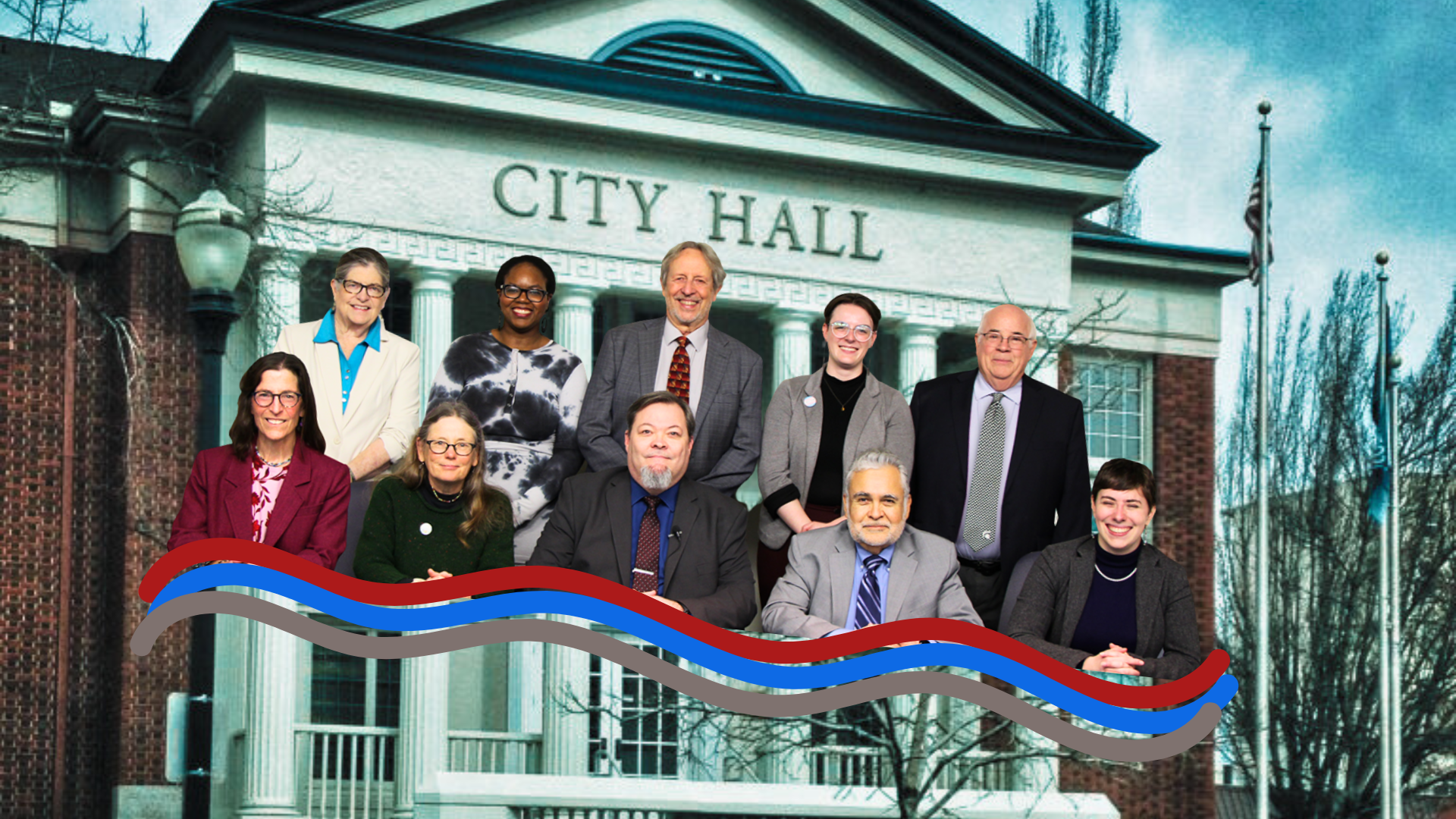 On Monday, Corvallis City Councilors rejected an Israeli divestment, or BDS resolution, that as late as last month appeared headed for approval. The sea change came after months of debate among Corvallisites during public comment periods at Council meetings, and then among the Councilors themselves.
On Monday, Corvallis City Councilors rejected an Israeli divestment, or BDS resolution, that as late as last month appeared headed for approval. The sea change came after months of debate among Corvallisites during public comment periods at Council meetings, and then among the Councilors themselves.
The final tally was not close, six-to-three. Votes against came from Councilors Carolyn Mayers, Jan Napack, Jim Moorefield, Tony Cadena, Paul Shaffer and Charlyn Ellis. Voting to approve were Councilors Briae Lewis, Alison Bowden and Ava Olson.
The resolution was at base a response to the violence between terror organization Hamas, and the State of Israel. Proponents, many of them unaware of the proposal’s antisemitic underpinnings, largely sought an end to the horrific unfolding of events in Gaza.
Critics pointed to both a singular targeting of Israel for divestment and the use of what have become antisemitic stand-in tropes for Jewish supremacy theories and blood libels in the language of the proposal.
The resolution sought to use a divestment list from the American Friends Service Committee, or AFSC, that targets Israel and Israeli companies. It was the only tool provided by in the proposal to determine what companies to divest from. The AFSC is often viewed as generally antisemitic by experts that track these organizations, but that assessment is only recently becoming common knowledge.
Lewis introduced the resolution in July.
Ellis and Shaffer’s swing votes against it last night were unanticipated. They had been voting to advance the resolution these last three months.
Who said what
Another criticism of the proposal has been that it would not have any material impact on Israel’s prosecution of the conflict with Hamas in Gaza. As it happens, Corvallis does not have any investment in the companies on the AFSC list anyhow.
Shaffer juxtaposed that lack of impact with the resolution’s divisiveness among Corvallisites in his remarks.
The resolution would have also required considerable annual vetting of all the City’s investments. It would have diverted staff time as municipal resources are contracting. The resolution might have also resulted in a loss of funding for City services.
Ellis, who has championed affordable housing and infrastructure for the homeless, noted these concerns in her comments.
Mayers, who has opposed the resolution from the start, centered her deliberations during the hearing on its community impact. She recounted recent reports she’s received of Corvallis students encountering swastikas carved into their desks at schools. She recounted students telling Jewish students they should die because they are Jewish.
During the hearing, Cadena’s evaluation of the proposal was plain. He said flatly, “It is antisemitic.” Cadena also expressed anger that the AFSC and local supporters had tried to position the proposal as also being about protecting immigrants, reminding attendees that he is from an immigrant family.
The AFSC lists 96 companies for divestment, 78 are Israeli or do business with Israelis, and only 18 do anything else.
Napack was equally plain, saying, “A city level BDS is not a moral stand.”
As the Council’s hearing wound toward a conclusion, it became clear they were leaning toward rejecting the proposal. Bowden made a last-ditch effort to save the resolution with a failed motion to remove the widely criticized AFSC divestment list.
Moorefield countered that City staff would then be left with no tools for how to comply with the resolution. Titled A Resolution Prohibiting Investment in Genocide, Apartheid, Illegal Occupation, Mass Deportation and Mass Incarceration, the proposal offered no definition for any of its title terms. The only tool to determine what to divest from would have been the AFSC list.
Moorefield pointed out that staff would then be left to determine a list for themselves, or to choose someone else’s list, and that there would have to be an annual review that involved the Council. And that all of this would be equally divisive as the resolution itself, on a yearly basis.
Advocate publisher Steven J. Schultz was at the Council meeting in a personal capacity to speak against the resolution. “Some of the councilors talked about the groups for and against this resolution needing to talk with each other, and I think that’s right, I think that really needs to happen,” he said.
By Hallie Greenberg, Editor-in-Chief Steven J. Schultz contributed to this report.
Do you have a story for The Advocate? Email editor@corvallisadvocate.com

